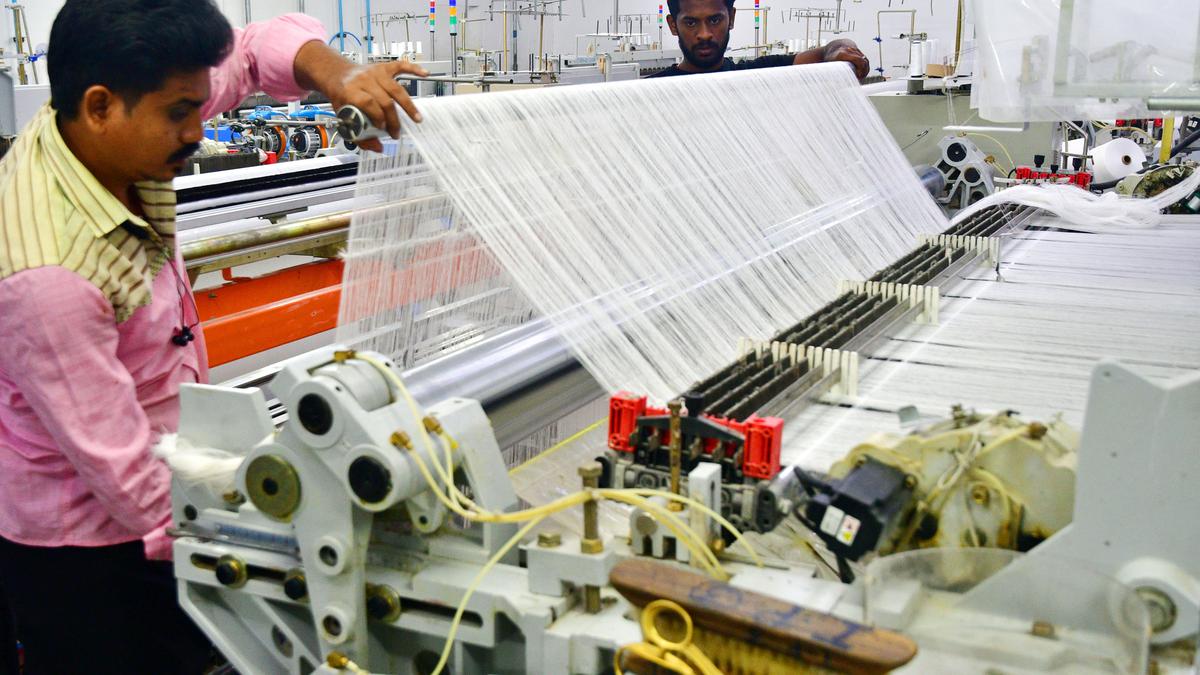
India’s $60 billion man-made textile sector reels from Chinese imports glut
The Hindu
India's MMF sector faces increasing imports, higher domestic prices, & QCOs, impacting local spinners, knitters, weavers & processors.
For almost a year now, India’s major textile hubs of Ludhiana, Surat, and Erode have been fighting an almost insurmountable challenge: rising imports, or arguably large-scale dumping, of man-made fibre (MMF) fabrics that is affecting a sector valued at about $60 billion.
Rajesh Bansal, a fabric processor in Ludhiana, took his friends from Nagpur recently to a retail outlet to buy fleece. “Of the six pieces shown to us, four were from China,” he says.
“China dumps fabric and this creates problems,” asserts Ashok Jirawala, president of the Federation of Gujarat Weavers Association. “We ran our weaving units to full capacity and now we have unsold stocks. So, we plan to cut production by 20%.”
C. Jaganathan, who weaves fabrics in Erode, imports viscose yarn from China. “When the prices were ₹180 a kg for Indian yarn, I got it for ₹125 a kg from China. Only for the last one month Chinese prices are higher. The Chinese sellers are now offering the current price for a year,” he observes.
In the last three years, MMF fabric imports, which attract mostly 20% duty, have doubled and most of it is knitted synthetic fabrics, contends R.K. Vij, secretary general of the Polyester Textile Apparel Industry Association.
According to data shared by Mr. Vij, in 2019-2020 (April to March), about 325 tonnes of fabric were imported every day from China at $4.61 a kg. The volume increased to 887 tonnes a day in the April-June quarter of this fiscal and the average value was about $2.90 a kg. Of this, value of knitted or crocheted dyed fabrics made of synthetic fibre was just $1.4 (about ₹118) a kg.
It is not just imports, but “under invoicing of imported finished fabrics that is a major issue,” notes Mr. Vij. “The government should issue a notice to Customs, stopping clearance of fabrics that are priced below a certain value at the ports,” he urges.

 Run 3 Space | Play Space Running Game
Run 3 Space | Play Space Running Game Traffic Jam 3D | Online Racing Game
Traffic Jam 3D | Online Racing Game Duck Hunt | Play Old Classic Game
Duck Hunt | Play Old Classic Game











